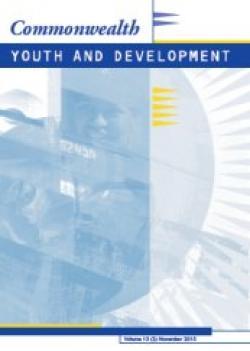
Link 1 https://www.sportanddev.org/en/document/research-and-project-evaluations...
February 19, 2018
While the Sport for Development and Peace (SDP) sector has grown enormously, its impact remains debatable, partly due to a lack of rigorous research and monitoring and evaluation, limited results, unclear theories of change, and few strategies to tackle broader structural and systemic problems in development (Coakley 2011; Giulianotti 2011; Richards et al. 2013). Certain SDP programmes exhibit a gap between evidence and practice, often a result of naïve and idealistic notions of the power of sport, and the field has been critiqued for lacking substantive and quantifiable impact.
This study responds to this gap by conducting a social return on investment (SROI) analysis of an SDP intervention delivered by a civil society organisation in South Africa. This article forms part of a larger doctoral study that examines roles and responsibilities (current and potential) of the public sector, civil society and academic sector in SDP, providing a cooperative governance framework that will hopefully enable improved levels of cooperation and coordination of the sector.
This article examines a SDP intervention initiated by Grassroot Soccer South Africa that promotes youth employability and leadership. A results-based management approach and a SROI methodology were used to track the young people during and after the intervention. Preliminary results offer encouraging evidence with 75% of youth progressing into employment, education and training, far above the national average in South Africa. Furthermore, there were positive social returns for the youth and external stakeholders with every R1 invested in the programme yielding a return of R1.72 over a five-year period, suggesting that this investment is cost-effective and impactful.
The results indicate that structured sport-based programmes can put young people to work and get them to study in a constructive manner, thereby stimulating economic growth and development. It is recommended that the youth work profession recognises the role that sport can play in youth development. For its part, the SDP field should engage with the youth work sector more meaningfully to determine the optimal role of sport in positive youth development, given sport’s innate ability to attract and engage young people in a “youth-friendly” manner. An integrated approach using sport for youth development may be a worthwhile investment and provide positive returns for society at large, including capacity building, employment, economic growth and social change. The SROI methodology and the synergies between youth development and sport for development and peace clearly merit greater investment, recognition and research. It has the potential to be a winning combination.










Add new comment